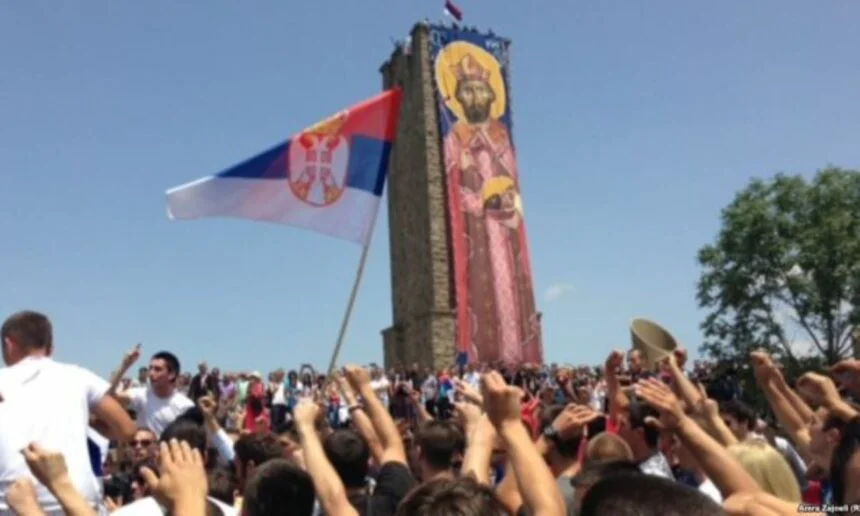In a definitive ruling, the Basic Court in Pristina has annulled a decision by the Municipality of Graçanica that would have allowed the display of Serbian state flags and symbols during the Vidovdan commemoration. This judgment, issued on June 9, 2025, after an 11-month deliberation, reaffirms that Vidovdan is not a recognized official or memorial holiday in Kosovo and that municipalities lack the authority to permit such public displays.
Vidovdan, celebrated annually on June 28, particularly at the Gazimestan monument near Pristina, commemorates the 1389 Battle of Kosovo. Last year, on June 10, 2024, the Municipality of Gračanica had approved the celebration with Serbian state symbols, submitting its decision to the Ministry of Local Government Administration (MLGA) for legality assessment. The MLGA then forwarded the request to the Ministry of Internal Affairs (MIA), which on June 24, 2024, stated that Vidovdan is not an official holiday and questioned the municipal decision’s legality. As Gračanica failed to reconsider its decision, the MLGA sued the municipality on July 31, 2024.
Overstepping Authority and Undermining Unity
Judge Kreshnik Kaçiu fully approved the MLGA’s lawsuit, emphasizing that the Court’s verdict “replaces the annulled act and is binding.” The Court’s reasoning highlighted that under Kosovo’s Law on Official Holidays, only the Government, in consultation with the President, can designate memorial days, two of which are in consultation with the Serbian community. Municipalities, the Court ruled, “do not have the competence to declare special public holidays that include the use of state or national symbols in public spaces.”
The Court deemed Graçanica’s decision an “overstepping of legally defined competencies” and a severe violation of Kosovo’s “unitary and constitutional character.” It stressed that “Kosovo is a unique and indivisible state” (Article 1 of the Constitution), and municipal authorities cannot take actions that relativize this principle.
Protecting Public Order and Preventing Dangerous Precedents
The judgment explicitly states that allowing the flag of another state (Serbia) outside legally stipulated cases “can be perceived as a symbolic act of dual sovereignty or political self-organization contrary to the constitutional order.” This is particularly crucial “in the context of ethnic and political sensitivity in Kosovo,” as such a precedent could “seriously risk public order and inter-community coexistence.” The Court warned that the decision could “provoke inter-ethnic tensions,” especially if perceived as municipal authorities favoring one community in defiance of central institutions.
The Court also rejected Graçanica’s argument that its decision was temporary, asserting that “the illegality of an administrative act is assessed based on its compliance with the law at the moment it produces effect, not on the basis of the duration of the effect.”
This final judgment aims to establish legality in this specific case and prevent similar violations in the future. It serves as a binding precedent for all municipalities, reaffirming that they cannot undermine central government competencies, legalize the public display of foreign state symbols independently, or disrespect the hierarchy of acts and decisions by central institutions of the Republic of Kosovo.






